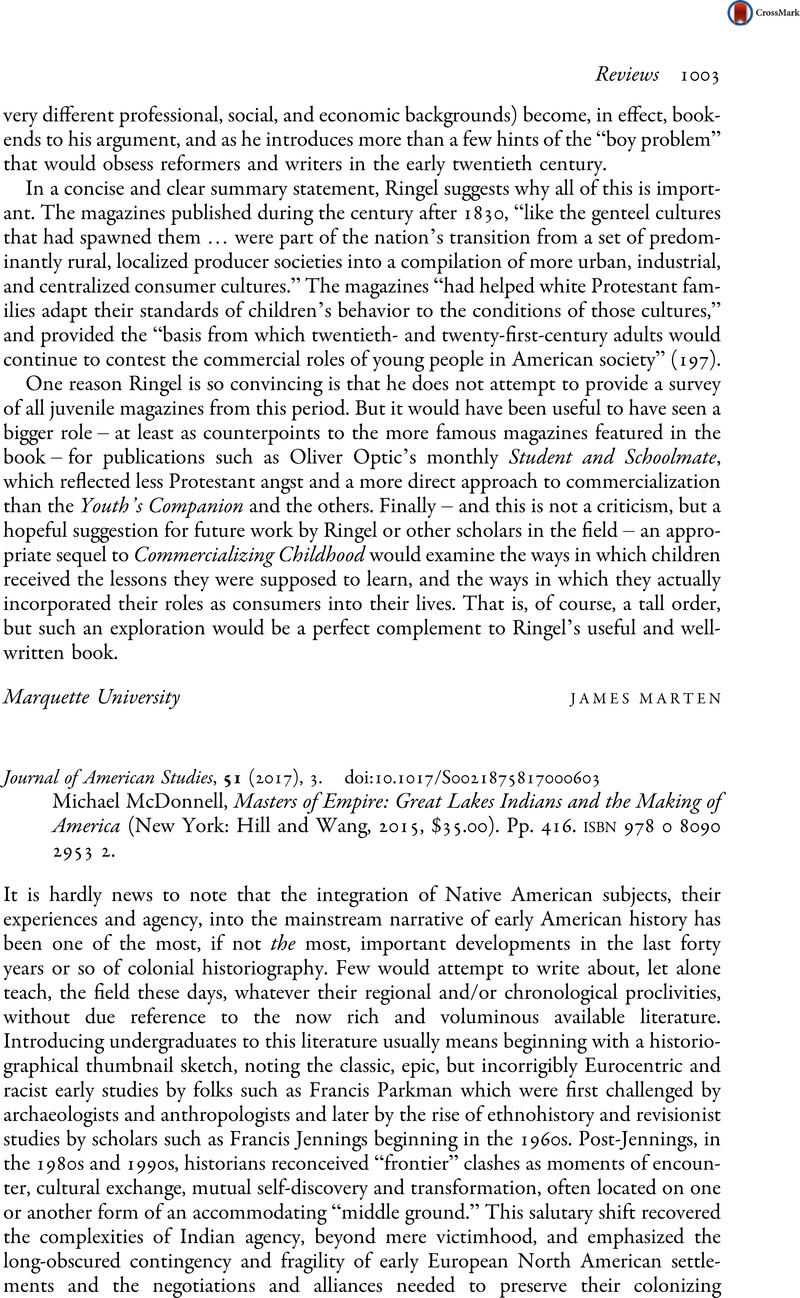No CrossRef data available.
Published online by Cambridge University Press: 12 July 2017

1 Jennings, Francis, “Goals and Functions of Puritan Missions to the Indians,” Ethnohistory, 18 (1971), 197–212 CrossRefGoogle Scholar; and his trilogy of books beginning with Jennings, The Invasion of America: Indians, Colonialism, and the Cant of Conquest (Chapel Hill: University of North Carolina Press, 1975)Google Scholar; White, Richard, The Middle Ground: Indians, Empires, and Republics in the Great Lakes Region, 1650–1815 (Cambridge: Cambridge University Press, 1991)CrossRefGoogle Scholar; Richter, Daniel K., Ordeal of the Longhouse: The Peoples of the Iroquois League in the Era of European Colonization (Chapel Hill: University of North Carolina Press, 1992)Google Scholar; and Richter, , “Whose Indian History?”, William and Mary Quarterly, 50, 2 (1993), 379–93CrossRefGoogle Scholar.
2 Richter, Daniel K., Facing East from Indian Country: A Native History of Early America (Cambridge, MA: Harvard University Press, 2001)Google Scholar; DuVal, Kathleen, The Native Ground: Indians and Colonists in the Heart of the Continent (Philadelphia: University of Pennsylvania Press, 2006)CrossRefGoogle Scholar; Hamalainen, Pekka, The Comanche Empire (New Haven: Yale University Press, 2008)Google Scholar; Rushforth, Brett, Bonds of Alliance: Indigenous and Atlantic Slaveries in New France (Chapel Hill: University of North Carolina Press, 2012)CrossRefGoogle Scholar.
3 Gordon S. Wood, “The American Vision of Bernard Bailyn,” Weekly Standard, 23 Feb. 2015, at www.weeklystandard.com/history-in-context/article/850083, in particular his judgment that the William and Mary Quarterly, the house journal for early American history, was in danger of “losing its way” and the response by the editor, Josh Piker, “Getting Lost,” at http://blog.oieahc.wm.edu/getting-lost.
4 Merrell, James H., “Second Thoughts on Colonial Historians and American Indians,” William and Mary Quarterly, 69, 3 (2012), 451–512 CrossRefGoogle Scholar.